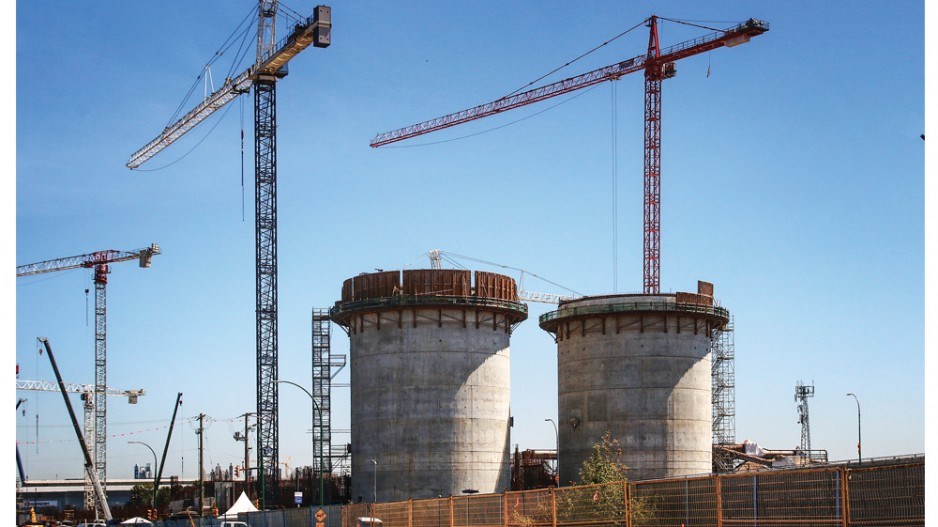There are times politicians do their best to not get to the bottom of things.
Like when it might be embarrassing or impede their careers.
To wit: the 41-member Metro Vancouver board of elected officials, on a Friday afternoon in the middle of summer when our attention might be muted, shut down with a secret vote behind closed doors an independent inquiry into the scandalous runaway budget for the North Shore Wastewater Treatment Plant.
Its rationale begs credulity—that the longstanding civil suit brought by the project’s original contractor, Acciona Wastewater Solutions LLP, and a counterclaim by Metro Vancouver against the company, were still before the courts. It said proceeding now was “not in the public interest” and its legal advisor said that the review “would be in a better position” to do its work if the legal battles were first resolved.
Well, yes, of course, who would disagree that lawsuits can be a nuisance to a review? But the Acciona claim for $250 million in costs and damages didn’t sudden spring upon Metro Vancouver on Friday morning. The review under former provincial deputy finance minister Peter Milburn has been underway for months. Independent reviews are at times structured to avoid interfering with legal proceedings, especially if the terms of reference were already scoped to avoid prejudicing matters before the courts.
So, among the logical questions: Why stop now?
Did any information emerge to change Metro’s mind?
If it did, might any of that information have been injurious to Metro’s position in the lawsuit?
Might it also be troubling to Metro’s handling of the project?
And if nothing changed, why did it not get legal advice earlier to hold off on a review?
The suit and countersuit are sideshows; the main event in the circus ring is how the project spun so wildly out of the control, and who let it happen. The public needs, and has a right, to know—certainly before the fall 2026 election—a full-fledged understanding on the step-by-step growth of the budget. Now it won’t get it. And in fairness to the Metro Vancouver politicians and executives who either approved the budget increases, or sat idly by as they grew, their reputations will be sullied now for several years.
The original $700-million contract in 2011 for Acciona has grown to $3.86 billion. The plant is one of a declining breed of primary wastewater treatment facilities in North America, meaning that it only removes waste that floats or sinks. The contract was changed to ensure that the much higher-grade tertiary treatment takes place, so that sediment in the primary stage and biological treatment in the secondary stage is further refined. Acciona was fired in 2021 and replaced. The original 2020 completion date now is 2030.
On average, staff projections indicate property owners on the North Shore face a surcharge to pay for the plant of $590 annually for 30 years; West Vancouver will impose a levy attached to assessment value to foot its share of the bill. Other Metro Vancouver municipalities face annual charges of $80 to $150 over a 15-year period. The provincial and federal governments have indicated further funds are not going to flow from them. Somewhat under the radar and undisclosed are the decommissioning costs of the existing plant.
The controversy underscores a broader problem with Metro Vancouver’s governance model: decisions with billion-dollar consequences are made by a board of indirectly elected officials, operating largely out of public view. Reform has long been overdue.
The public has no idea on how any resolutions of the lawsuits are faring.
“We welcome the recent court decisions and will continue to work towards a timely resolution. Acciona is fully committed to transparency and supporting the ongoing judicial process," the company said in a statement.
If settlements were imminent, I have to think the advice to the Metro Vancouver board wouldn’t have been to stop the review. But the trial isn’t scheduled on Acciona’s claim until March 2027 (Metro Vancouver failed in June to get a further delay), and given the pace of these cases, it is fair to assume a judge won’t render a ruling until 2029 or 2030.
By then, the decision-makers are likely into retirement or pensions. By then, any subsequent review will have the feel of ancient history.
It means the board can run again next year and shield itself with one of those “it’s-before-the-courts” defences when pressed on the issue in their campaigns. We don’t even know who voted in favour of the shutdown Friday—at the very least, this would be a good time for the dissenters to stand and be counted. (By my count, District of North Vancouver Coun. Catherine Pope and New Westminster Coun. Daniel Fontaine are the only oppositional voices—neither of them is on the Metro Vancouver board.)
“Metro Vancouver will continue to be transparent about the project’s status,” says its website. Might want to revise that line—or the board’s behaviour.
Kirk LaPointe is a Lodestar Media columnist with an extensive background in journalism. He is vice-president in the office of the chair at Fulmer & Company.



